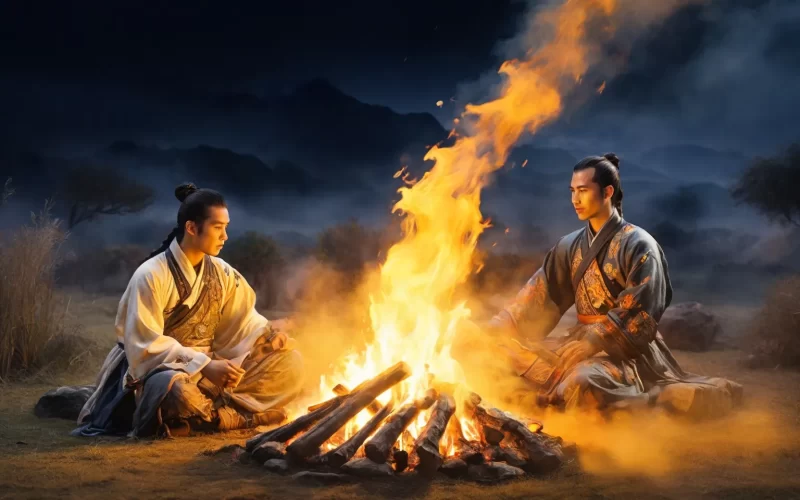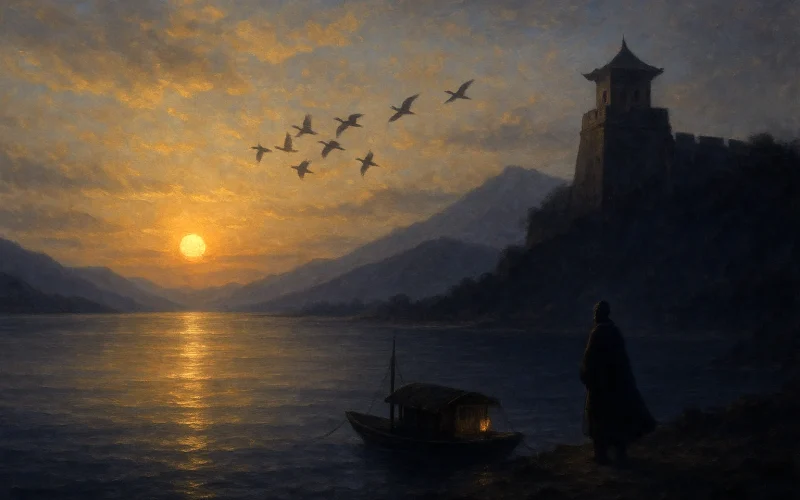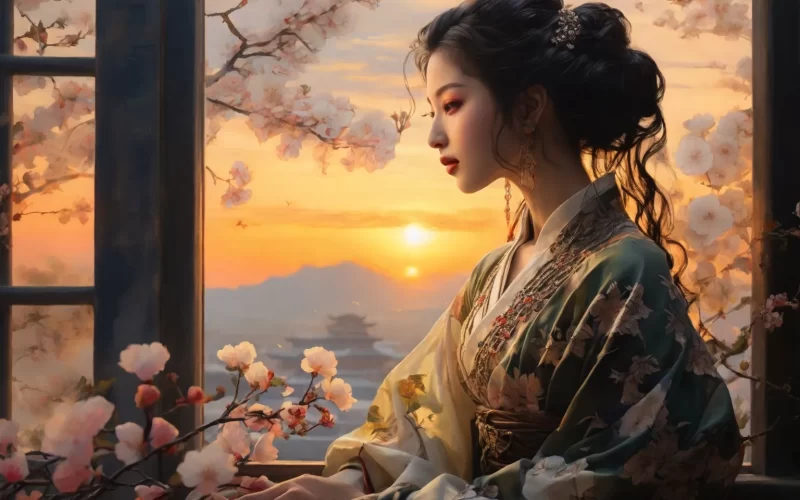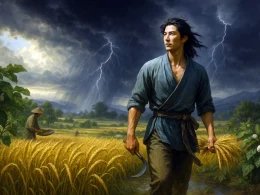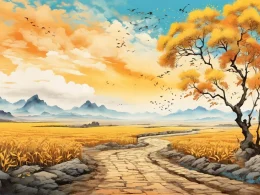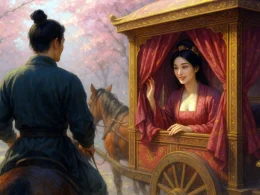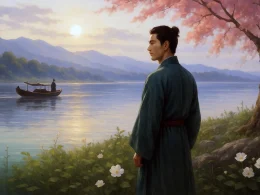For years, to guard the Jade Pass and the River of Gold,
With our hands on our horse-whips and our sword-hilts,
We have watched the green graves change to snow
And the Yell ow Stream ring the Black Mountain forever.
Original Poem
「征人怨」
柳中庸
岁岁金河复玉关,朝朝马策与刀环。
三春白雪归青冢,万里黄河绕黑山。
Interpretation
This poem stands as a quintessential example of Late Tang frontier poetry. Titled "The Soldier's Lament," it captures the resentment of troops perpetually stationed at the border. Following the collapse of the militia system and rise of mercenary recruitment in mid-Tang, countless soldiers endured endless campaigns with no hope of homecoming—a recurring theme in late-period frontier verse. The poem gives voice to their bitterness and sorrow.
First Couplet: "岁岁金河复玉关,朝朝马策与刀环。"
Suì suì Jīnhé fù Yùguān, zhāo zhāo mǎ cè yǔ dāo huán.
Year on year: Golden River to Jade Gate anew; Dawn to dusk: whip-cracks and sword-rings pursue.
The poet juxtaposes two distant frontiers ("Golden River" and "Jade Gate") with two relentless sounds of military life. The reduplication "year on year" (岁岁) and "dawn to dusk" (朝朝) stretches time into an infinite loop of drudgery. The metallic "sword-rings" become prison bells marking captive days.
Second Couplet: "三春白雪归青冢,万里黄河绕黑山。"
Sān chūn báixuě guī qīng zhǒng, wànlǐ Huánghé rào hēi shān.
Spring's third moon—snow still veils green graves; The Yellow River coils round Black Mountain's waves.
Here, nature itself conspires against hope: "spring snow" (三春白雪) denies seasonal rebirth, while "green graves" (青冢, referencing Wang Zhaojun's burial site) foreshadow foreign soil as their final rest. The "coiling"黄河 mirrors the soldiers' trapped existence—even this mighty river cannot flow freely homeward, just as they cannot escape the "Black Mountain's" shadow.
Holistic Appreciation
Though only four lines long, the poem masterfully blends scene and emotion, creating a profound and far-reaching artistic conception. Rather than directly expressing resentment, the poet employs stark geographical names and imagery to evoke an atmosphere of bitter isolation, embedding the sorrow of border garrison soldiers—trapped in harsh conditions with no hope of returning home—within the landscape. The first couplet depicts the hardships of daily military life, while the second conveys the frigid frontier and the anguish of homesickness. The poem’s emotional intensity builds progressively, shifting from material suffering to spiritual despair. Through allusive imagery like "green graves" (青冢) and "Black Mountain" (黑山), it subtly hints at the soldiers’ fear of dying far from home, deepening the weight and poignancy of their lament.
Artistic Merits
- Natural Allusions with Profound Meaning: "Green graves" implicitly reference Wang Zhaojun, symbolizing the dread of never returning home.
- Precise Parallelism and Concise Language: The two parallel couplets exhibit both semantic symmetry and rhythmic harmony.
- Fusion of Scene and Emotion, Melancholic Imagery: Natural elements—cold snow, green graves, and Black Mountain—reflect the soldiers’ desolate state of mind.
- Reduplicated Temporal Words Enhance Rhythm and Mood: The repetition of "year after year" (岁岁) and "day after day" (朝朝) intensifies the poem’s cadence and emotional oppression.
Insights
Through the soldiers’ perspective, the poem exposes the suffering of late Tang conscripts—endlessly adrift, torn between duty and homesickness, yet powerless to return. It subtly critiques the era’s relentless warfare and systemic imbalances, reminding us that war depletes not just a nation’s strength but also devastates individual lives and emotions. The poem’s portrayal of "endless campaigns with no homecoming" resonates as a timeless reflection on human longing for belonging and warmth. Even today, its emotional power remains deeply moving and thought-provoking.
Poem translator
Kiang Kanghu
About the poet
Liu Zhongyong (柳中庸) was a native of Yongji, Shanxi. He lived from about the time of Emperor Xuanzong of Tang to Emperor Daizong of Tang, and served as a Household Cao of Hongfu. He and his brother, Liu Zhongxing, were both famous for their literature. Xiao Yingshi loved his talent and took his daughter as his wife. He was good at writing poems about women's grievances and the border areas.






